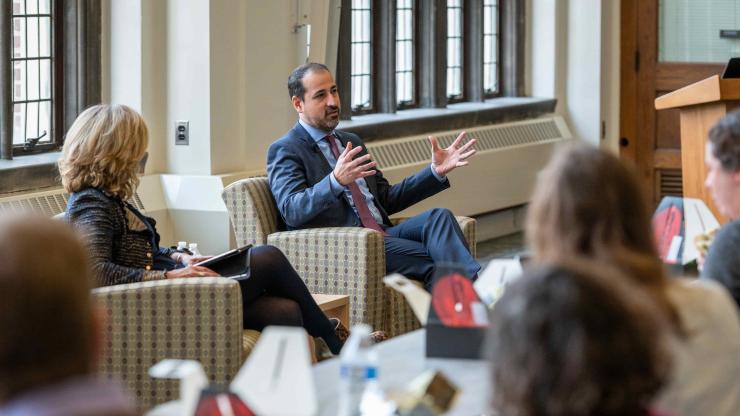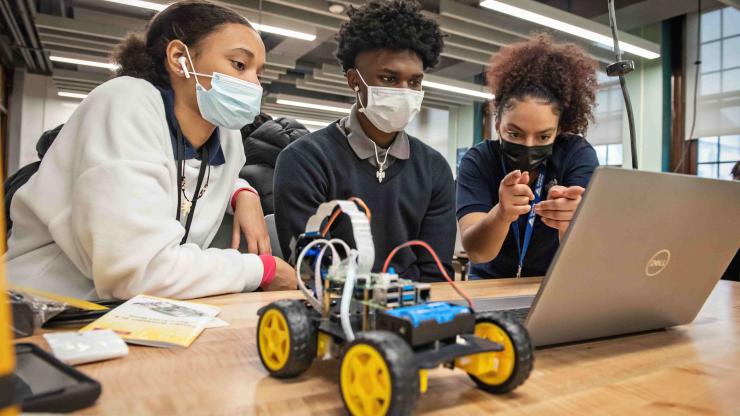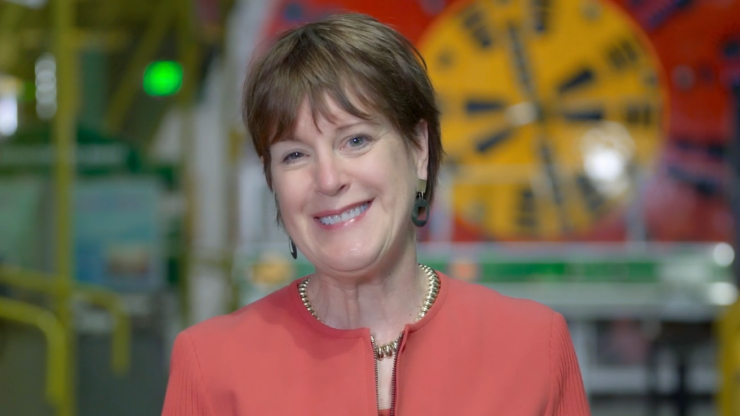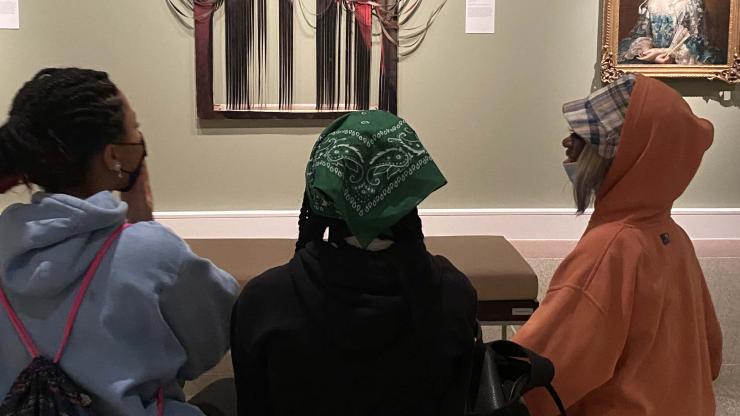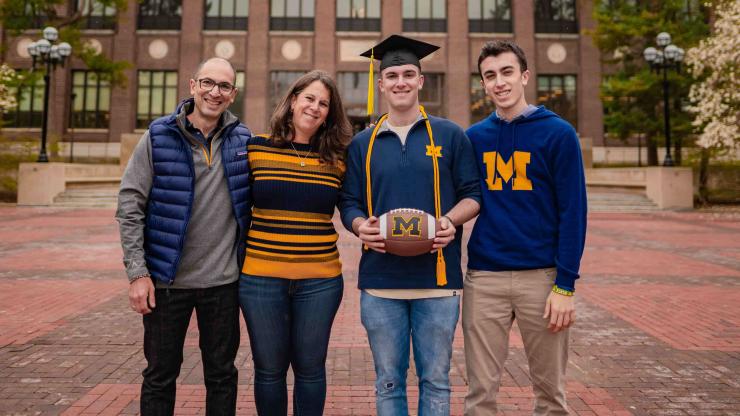A Systemic Solution to the Michigan Teacher Shortage
SOE’s Michigan Alternate Route to Certification expands its program to create the Initial Certification Pathway

According to the Michigan Education Association, it is estimated that up to 10,000 teachers are leaving their jobs in Michigan each year and only 5,000 are entering the field in their place. The shortage of qualified teachers was a concern before the COVID-19 pandemic, particularly in urban and rural communities and in certain subject areas, and has only intensified in the past two years.
Recruiting teachers has become a focus for school districts, educator preparation programs, state legislators, and the Department of Education. As policymakers urgently implement stopgap measures to ensure that schools have enough adults in classrooms to stay open, the SOE is focused on expanding pathways to bring new educators into the profession and preparing them to be effective and impactful in the important work of teaching children and youth.
The SOE now offers three pathways to teacher certification: a bachelor’s degree with certification beginning in the third year of an undergraduate sequence, a master’s degree with certification that is completed in one year, and a new alternate route to certification for candidates who already hold a bachelor’s degree at minimum.
The new non-degreed certification route is an expansion of the SOE’s successful Michigan Alternate Route to Certification (M-ARC). M-ARC builds on its success in preparing and certifying hundreds of teachers in the last 12 years, positively affecting students’ lives throughout the metro Detroit area. The program began as a partnership with Teach For America-Detroit by providing the teacher preparation program for its corps members to hold the certification required to teach in Michigan schools.
M-ARC also offers a pathway to additional endorsement for experienced educators to earn certification in other content areas without leaving the classroom. It addresses the teacher shortage by providing more flexibility among existing teaching staff in schools and districts.

M-ARC’s new Initial Certification Pathway allows Michigan residents with a bachelor’s degree to get their teaching certification without prior classroom experience. “Our mission [at M-ARC] is to prepare individuals throughout Michigan to be highly qualified teachers for Michigan students and to open access to the teaching profession for people who may not be able to participate in a traditional bachelor’s or master’s program,” says M-ARC associate director Jean Mrachko.
In this program, candidates begin with a pre-service induction period that includes self-paced online coursework—with an average duration of five months—and a practicum experience working with children in an educational setting. Teaching experiences structured to gradually increase the candidates’ level of responsibility begin with 1-1 teaching to develop skills such as eliciting student thinking, getting to know learners, and understanding student misconceptions. The candidates move to small group teaching before being in classrooms full time.
Kendra Hearn, Associate Dean for Undergraduate and Teacher Education, has directed M-ARC since its founding. She explains that M-ARC’s pre-service program intentionally connects coursework and fieldwork (sometimes called “clinical experience”), and how this is a critical element of the program design: “Through asynchronous online coursework, candidates receive knowledge about core teaching practices; then they are asked to process what they learned and make connections to their clinical experiences through synchronous sessions.”
Hearn adds that clinical experiences are an important space for introducing and developing habits of minds that form the foundation of inclusive teaching practices. Says Hearn: “Developing teachers capable of delivering equitable and socially just educational opportunities for all students begins with helping our candidates confront their own assumptions, identify and operationalize ways of thinking, and recognize children as whole human beings. These habits are at the core of trauma-informed practice and supporting the social-emotional learning of students.”
Once the pre-service induction is complete, candidates can start teaching under a Michigan interim teaching certificate. Then, for their first three years in the classroom, they receive ongoing, practice-focused, content-specific preparation and development to earn their Michigan standard teaching certificate.
“What stands out in this alternate route is the three years of support,” says M-ARC program manager Karen Young. “When forming teachers, we're not just sitting in the background while you're teaching. We are there with you, partnering in your classroom.”
As the first cohort of teacher candidates in the new pathway begins its pre-service induction, other M-ARC graduates applaud the program expansion as a way to recruit new teachers into the profession who bring with them valuable experiences in and out of classroom settings.
Born and raised in Detroit, Mojoko Esu graduated from Howard University in 2018 with a bachelor's degree in psychology. After graduation, she accepted a position with Teach For America and was part of the M-ARC program; she is currently a sixth grade teacher at Brenda Scott Academy for Theatre Arts in Detroit.
“Programs of this nature and caliber are more important now than ever before,” Esu says. “Teacher shortages were rampant pre-pandemic and the vacancies have continued rising at exponential rates across the state ever since. All children deserve a well-rounded education from quality educators who have the passion, proper training, and tools to be highly effective. M-ARC helps to make that possible by providing diversified tools and continuous training to those who may not have taken the traditional route to teaching but who have the passion for serving students and families now.”

For many participants, an alternative route to the certification program allows for a career change and the ability to bring extensive real-life experiences into the classroom.
High school advisor David Vidal-Jones, who teaches Hispanic culture and languages, has transitioned from college to high school teaching. M-ARC has helped him reach the certification goal, broadening his teaching range.
“Professionals and graduates inspired by the call of teaching need a program that supports their needs and realities as Michiganders,” he says. “M-ARC provides that and the expansion of the program to younger generations of graduated professionals will fill the shortage of teachers' gap, as the new teachers will learn and mature in the classrooms, learning by experiencing hands-on teaching every day.”
For Brennah Donahue, a third grade teacher at Escuela Avancemos! Academy in Southwest Detroit, M-ARC invites people who may not have initially considered education as a career to become involved.
“Besides allowing individuals to enter the field of teaching, bringing with them unique assets as they come from a variety of backgrounds, the program is a timely asset that can be a part of a creative solution to address teacher shortages,” she says.
Program leaders and alumni alike see the new M-ARC pathway as part of a systemic solution to teacher shortages around the state. “People are being placed in classrooms with no education or support because it’s a crisis,” Hearn says. “Our intention is to create a program that districts can leverage to place committed community members in schools and help them develop their skills and expertise as classroom teachers.”
Further, Hearn aspires to keep teachers in the classroom through robust mentorship. “M-ARC has an excellent record of retention. The research shows that being well prepared and having professional supports encourage teachers to stay in the classroom. It’s also better for students and families when teachers persist in this complex and fascinating profession,” says Hearn.
Candidates can apply directly through the M-ARC website (soe.umich.edu/m-arc) or request information by email at [email protected].
